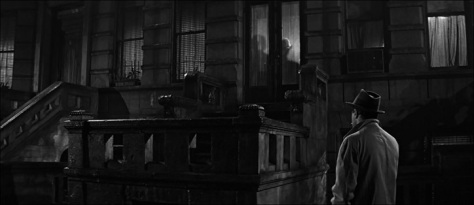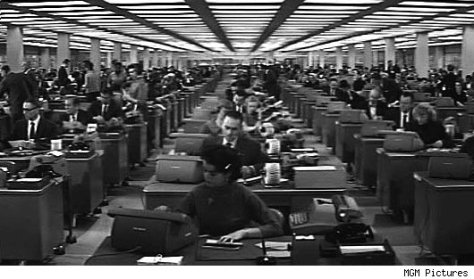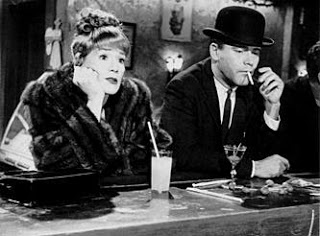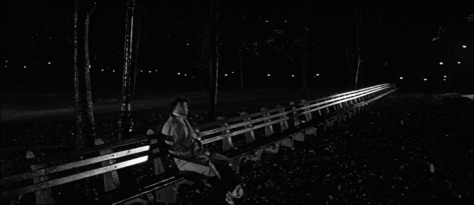This one is going to be dedicated to a single masterpiece that has spunk, mammoth enough, to hold up an entire column by itself. I began March 2019 with this movie, and the perfection of ending it on the same note is highly satisfying. And no, I don’t wish I had seen this movie earlier than I did. I could fully appreciate it only because I watched it when I did, after gaining a considerable understanding of cinematic symbolisms and successes over a period of time. There is a fat chance I may not have enjoyed the movie’s humour had I experienced it even as little as two years ago, when mystery thrillers were my primary fodder. Thank heavens I introduced some variety into my diet, else I would have been left malnourished.
Billy Wilder’s The Apartment is easily one of the best films I’ve watched. It is funny, tragic, joyful, bizarre, thoughtful, and very, very brave. It is, in every sense, poetic. Such a description may appear unseemly, since the movie upon its release was deemed to be a sex comedy with a subject matter inappropriate for that age. But the backlash from conservative crowds was nullified when the film made large sweeps at the 33rd Academy Awards, and continues to rank among the greatest films ever made. It is also often quoted for its memorable characters, courtesy of Jack Lemmon’s impeccable comic timing, and Shirley MacLaine’s self-secure demeanour.

A quick rundown of the movie: Bud Baxter is a good-natured bachelor, who rents his apartment out nightly to his adulterous bosses from office, who require a place to entertain their mistresses in. They entice him by promising to return the favour by giving him promotions, which keeps this arrangement going. Simultaneously, Baxter, unlucky in love, is attracted to Fran, the office’s lift operator who he’s friendly with. One night, he returns home to find an abandoned woman in his house. It turns out to be Fran, who unsuccessfully tried to commit suicide after her relationship with Baxter’s boss, Sheldrake, ended sourly. She spends the next two days in Baxter’s apartment while he nurses her back to health.
Though the movie is marketed as a romantic comedy, Baxter’s liaison with Fran, surprisingly, does not hog the limelight. It constitutes a major chunk of the second half of the movie, while the rest of the first half focuses on the part of the storyline devoid of real love. It builds up the characters’ lives, which are influenced by the overarching narrative of socio-economic conditions of that time.

Baxter lives a mechanical existence, like a prototypical 1960’s “organisation man”, a faceless worker in a corporate company. A brilliant shot, showing geometrical lines upon lines of workers working in a deliberately synced rhythm, captures the frenzy of economic pursuit by way of something resembling a human assembly line. Even domestically, Baxter is a lonely man. He compensates for the tragedy of his life comically, through sheepish mannerisms, and stilted conversations. This duality convinces me that The Apartment can best be categorised as a “tragicomedy,” reminiscent of the gloomy humour in Beckett’s Godot. Baxter’s humour, both performative (when he strains noodles with a tennis racket) and dialogic (That’s the way it crumbles…cookie-wise), is only the means to a tragic end. It masks an underlying existentialist despair, that selflessly invites you to giggle throughout.

Another wonderful scene shows Baxter in a bar, joined by a woman, a little ditzy, who shares in his meaninglessness. It is a simple mid-level shot taken from behind the bar counter, minimalist in nature, but is suited to the couple’s exchange, since this scene means to be cathartic, owing to shared human experiences. The scene ends with the couple slow dancing, resting their heads on each other as if to lighten the weight of the world in this carefree escape, until they are thrown out of the now-empty bar, back to reality.

The framing technique in the rest of the film too is meant to be symbolic of its themes. There are several wide angle shots, the most distinctive one being of the movie’s main subject itself- the apartment. A stationary frame, shot from a third person perspective, gives us a view of all the rooms in the house. The only object in motion is Baxter, prancing from one room to the next. Though the apartment is small, all that unoccupied, vacant space is characteristic of Baxter’s loneliness.
The Apartment is quite a progressive film for its time. In keeping with the 1960’s liberal counterculture, it chose to deal with a hush-hush subject like one-night stands, and unapologetically so. The film is devoid of any didactic moral policing that is critical of this “unrighteous” debauchery, except maybe Baxter’s neighbours, who are sometimes irked, but not violently dismissive of this concept.
One thing I like most about the film’s ending is its unstable resolution. As if by rom-com convention, Fran returns to Baxter on New Year’s night. But that is where the convention ends. The atmosphere in the apartment is not one of ecstasy. At most, it is only hopeful. We are made aware of the space that still lies between Fran and Baxter, because they do not automatically become lovers. Endearingly enough, they continue to call each other by their last names even as they are on the brink of a budding relationship. This iterates the film’s standing that it does not seek to make any false claims of a “happily ever after,” even though by creatures of habit we might be convinced of that future. What the couple shares as the film closes is more real, more momentary. And as they both sit down to play cards, Baxter’s iconic “You hear what I said, Miss Kubelik? I absolutely adore you.” certifies, that simplicity is key…rom-com-wise, life-wise, and everything-wise.
Written by Tanvi Akhauri
Edited by Sukriti Vats
Featured Image edited by Tanvi Akhauri
(A still from The Apartment)



